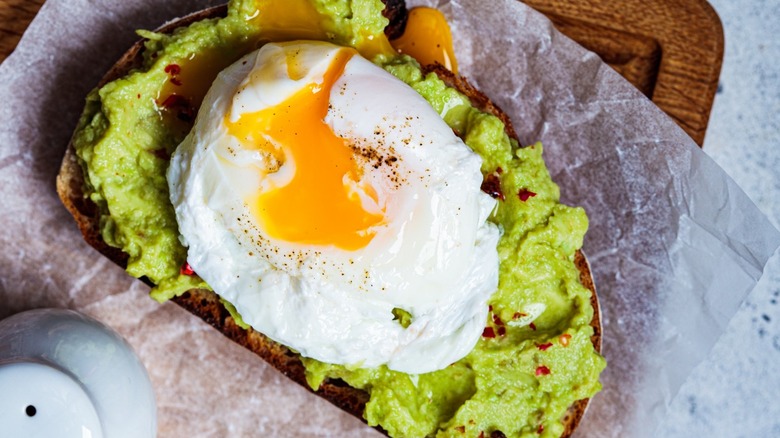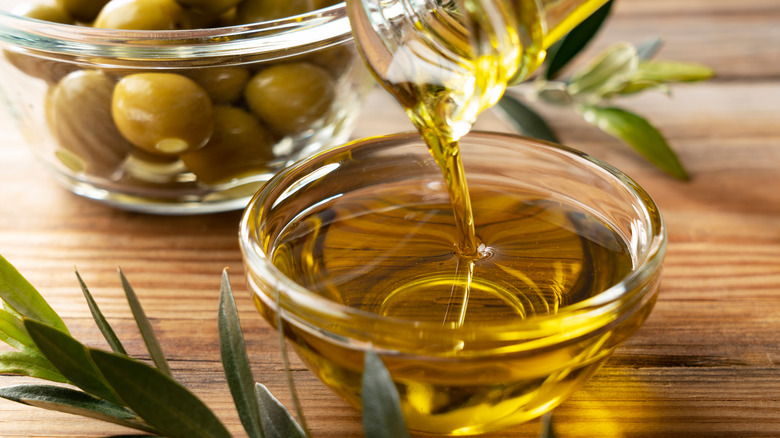The Reason You Should Start Poaching Eggs In Olive Oil
When it comes to versatility, it's hard to beat the incredible, edible egg. Whether you're sinking your fork into some simple scrambled eggs or a fluffy omelet, or whipping up a more labor intensive dish such as eggs Benedict or steak and eggs — not to mention all the baked goods and desserts that eggs make their way into — eggs appear in a myriad of dishes that run the gamut from savory to sweet to everything in between. And if you like eggs, chances are you've eaten a poached egg or two in your day.
As explained by the Food Network, a poached egg is a cracked egg that is lowered into gently simmering water and typically cooked until the white becomes firm and the yolk remains runny. The egg preparation featured in eggs Benedict, poached eggs also make a nice addition to avocado toast or a salad. Water-poached eggs are the standard, but did you know you can also poach eggs in a nice, warm bath of olive oil? Read on to find out why you should try this technique at home.
Olive oil-poached eggs are extra-rich
If you love poached eggs, you might want to ditch the water and grab your bottle of olive oil the next time you make them at home. When poached in olive oil, according to Lifehacker, eggs turn out extra rich — like a fried egg, but with a soft, creamy yolk.
Plenty of chefs are fans of poaching eggs in olive oil. Bobby Flay, for example, has a recipe for olive oil-poached eggs on toasted sourdough with pancetta and tomato relish, while Seamus Mullen demonstrates the technique in a YouTube video from 2011. Mullen, who has lived and worked in Spain and has run a number of Spanish restaurants, according to his official website, cites the Spanish influence for the dish in his video, adding that it's an "extremely simple and delicious dish."
And simple it is: To poach eggs in olive oil, Food52 suggests heating extra-virgin oil in a small pan to a temperature of 140 degrees Fahrenheit, adding some fresh garlic and black peppercorns to the warmed oil, and then cooking the eggs until just set, about two minutes. This method is known as confiting, which Great British Chefs explains originates from France and refers to slow-cooking in a liquid — in this case, olive oil instead of water.
One more tip? Don't toss the oil! According to Food52, you can use the reserved oil for cooking and vinaigrettes.

